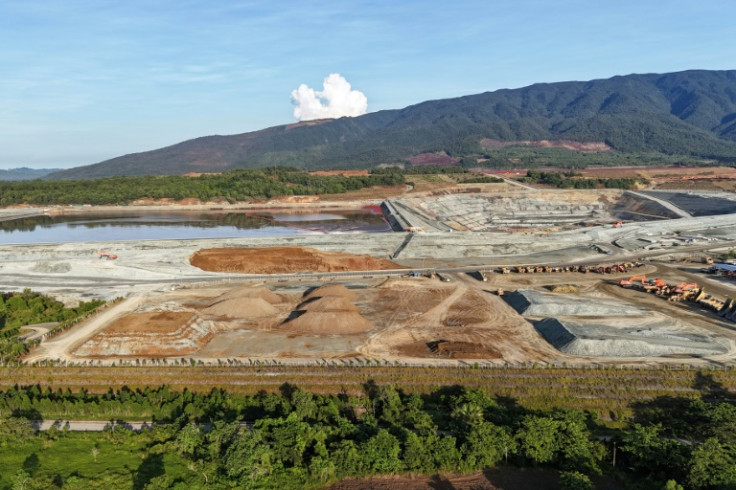Celebrating 20 Years of RuBee: The Magnetic Alternative Transforming Industrial and Defense Applications

After two decades of quiet but powerful innovation, RuBee (IEEE 1902.1) by Visible Assets, Inc., the magnetic, packet-based alternative to traditional RF and RFID, is stepping into the spotlight. Founded in 2004, the company is now celebrating over 20 years in the industry with a bold push into global expansion. With a proven track record in high-security environments like missile systems, sensitive assets, and defense armories, RuBee's technology is gaining traction across key sectors, from defense to healthcare, mining, and manufacturing.
Unlike traditional RF, RuBee's magnetic signals don't bounce, scatter, or get blocked by people, steel or liquids. That makes it both resilient and ideal for challenging environments such as storage bunkers, naval bases, deep mining operations, and industrial applications. RuBee's active tags, boasting battery lives from 5 to 25 years, are deployed in some of the world's most sensitive and demanding environments, from defense facilities to surgical operating rooms.
"We're now at the point where we've turned the corner," says founder and CEO John K Stevens. "After 20 years, we're getting large multimillion-dollar orders. Our solution products are becoming the bread and butter of our Internet of Things (IoT) growth."
RuBee's most critical deployments today lie in military applications. The company's sensor tags are used to track firearms, armory assets, and even kinetic devices. It's been tested extensively and cleared for use around explosives, including fuzed ordnance.
These government contracts often come with strict requirements, including those that mandate U.S.-based manufacturing. While RuBee conducts extensive manufacturing in Canada, it maintains a trusted contract manufacturer in New Hampshire to fulfill Made-in-USA mandates. "We can make everything domestically when needed," Stevens says. "That flexibility is key when working with the Department of Defense."
RuBee's reach extends well beyond the United States. The company now operates internationally, with active deployments and partnerships in multiple European countries, as well as Estonia and Australia. This international growth signals RuBee's rising relevance in a world where both defense readiness and industrial accountability are more critical than ever.
"We're seeing strong global demand in both defense and industrial sectors," says Stevens. "Europe is particularly interested in our armory and missile sensors, and health management, while in Australia and parts of South Africa, we're seeing momentum in mining and heavy equipment."
While defense has always been RuBee's proving ground, Stevens sees industrial markets as the company's next frontier. In mining, RuBee has developed rugged tags with embedded magnetic tags that attach to metal teeth on excavators, built specifically for a major client. The company is also involved in identifying injection molding tooling and optimizing throughput. The system highlights RuBee's capacity for deep customization in extreme environments.
In manufacturing, the technology is used for tool and part tracking, especially in environments where grease, steel, and liquid interference would render RFID useless. And in healthcare, RuBee is being tested by a hospital chain for surgical tray tracking. "They had trouble tracking trays with RFID, but we were able to tell them exactly where a tray is, even on a shelf, through packaging, and if it has been through the autoclave," Stevens affirms.
Crucially, RuBee's safety profile makes it a rare wireless option suitable for hospital settings. The FDA has classified RuBee as a Class 1, non-significant risk device, and it's been approved for use in operating rooms and around pacemakers.
This isn't Stevens' first company: Visible Assets is his fifth. A seasoned entrepreneur, he admits that RuBee has been the hardest challenge yet. "It's a truly disruptive technology," he says. "We've had to build the ecosystem ourselves. There's a lot of R&D, a lot of cost, and a lot of hurdles to cross. But we've done it. And we're still here."
Operating as a lean, capital-efficient business, RuBee often relies on prepayments to fund manufacturing. Lead times average between 90 and 120 days, depending on order complexity and location, but that hasn't stopped the company from executing contracts at scale. "We're small, but we're scalable," Stevens confirms.
Looking ahead, Stevens sees a clear path: maintain focus on high-value, high-security applications for sensitive assets while continuing to scale in harsh industrial environments where traditional wireless systems fall short.
"We're not just another RFID company," he says. "We're magnetic, with sensors. We're secure. And we're built for environments where nothing else works. After 20 years, we're finally seeing the world catch up to the technology we've built."
© Copyright IBTimes 2024. All rights reserved.





















